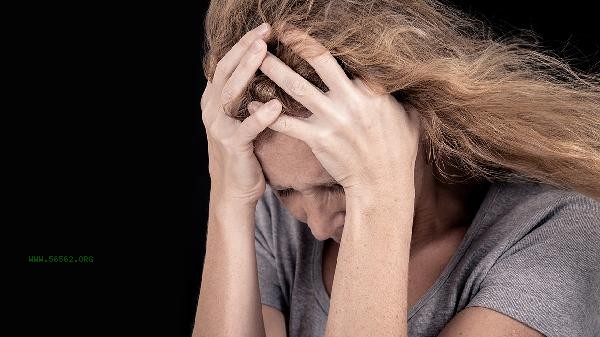Difficulty falling asleep during menopause can be improved through adjusting lifestyle habits, psychological counseling, traditional Chinese medicine regulation, hormone replacement therapy, medication treatment, and other methods. Menopausal insomnia is usually associated with hormonal fluctuations, emotional anxiety, environmental disturbances, and other factors.

1. Adjust lifestyle habits
Maintaining a regular sleep schedule and fixed bedtime and wake-up times can help stabilize the body clock. Avoid drinking caffeinated beverages such as coffee and strong tea before bedtime, and reduce the use of blue light electronic devices. The bedroom environment should be kept dark and quiet, and the room temperature should be controlled within an appropriate range. Moderate exercise during the day, such as walking or yoga, but avoid vigorous activity before bedtime.
2. Psychological counseling
Menopausal emotional fluctuations can easily lead to anxiety related insomnia, which can be relieved through mindfulness meditation and breathing training. Participate in social activities or cultivate hobbies to divert attention, and seek professional psychological counseling if necessary. Keeping a sleep diary helps identify psychological factors that affect sleep, and family members should provide full understanding and support.
3. Traditional Chinese Medicine Treatment
Traditional Chinese medicine believes that menopausal insomnia is mostly caused by liver and kidney yin deficiency, and can be treated with prescriptions such as Suanzaoren Tang and Tianwang Buxin Dan according to medical advice. Daily dietary therapy can use ingredients such as lilies, lotus seeds, goji berries, etc. to make soup, avoiding spicy and hot foods. Moxibustion at acupoints such as Sanyinjiao and Yongquan also has a calming and sleep aid effect, and should be performed by professional physicians.

4. Hormone replacement therapy
is used to treat symptoms such as hot flashes and night sweats caused by estrogen deficiency. After evaluation by a doctor, estrogen and progesterone preparations can be used for a short period of time. Before treatment, it is necessary to complete breast and endometrial examinations, and regularly monitor hormone levels during medication. Attention should be paid to the risk of thrombus and breast cancer, and long-term high-dose use is not recommended.
5. Drug therapy
Severe insomnia can be treated with short-term use of non benzodiazepine hypnotic drugs such as zopiclone and zolpidem, or low-dose trazodone to improve sleep maintenance. Individuals with anxiety and depression can be treated with antidepressants such as paroxetine and venlafaxine. All medications must strictly follow medical advice to avoid self adjustment of dosage or sudden discontinuation.

Menopausal women can add soy products, deep-sea fish and other foods rich in phytoestrogen and omega 3 fatty acids, and drink warm milk or millet porridge before going to bed. Persist in soothing exercises such as Eight Section Brocade and Tai Chi, and avoid taking a long nap during the day. Establish a bedtime relaxation ritual such as soaking feet and listening to light music. If symptoms continue to worsen, seek medical attention promptly to check for potential diseases such as thyroid dysfunction and depression. Maintain an optimistic attitude and recognize that menopausal insomnia is a periodic physiological phenomenon that usually gradually subsides as the body adapts.




Comments (0)
Leave a Comment
No comments yet
Be the first to share your thoughts!